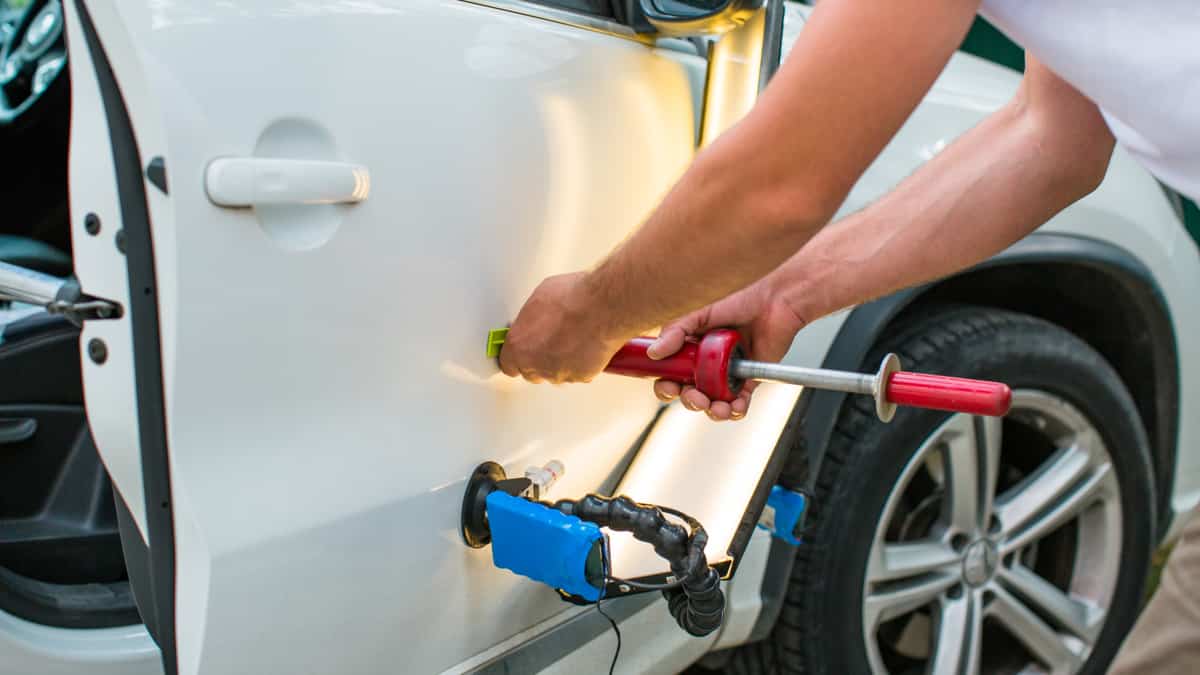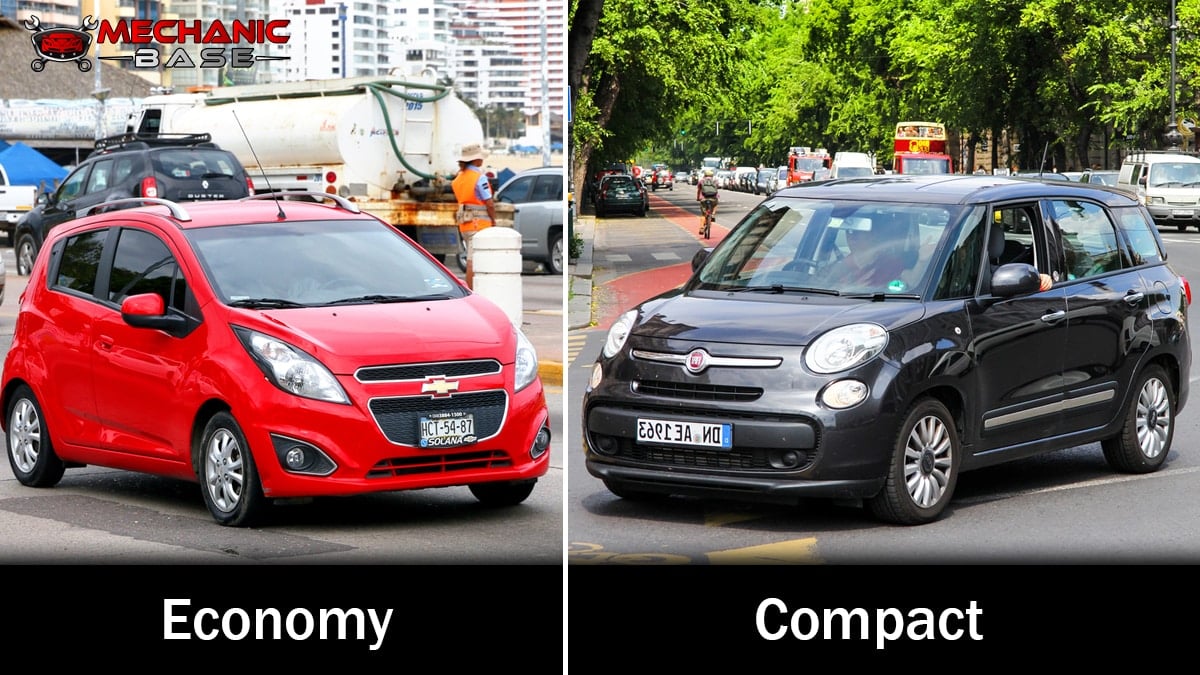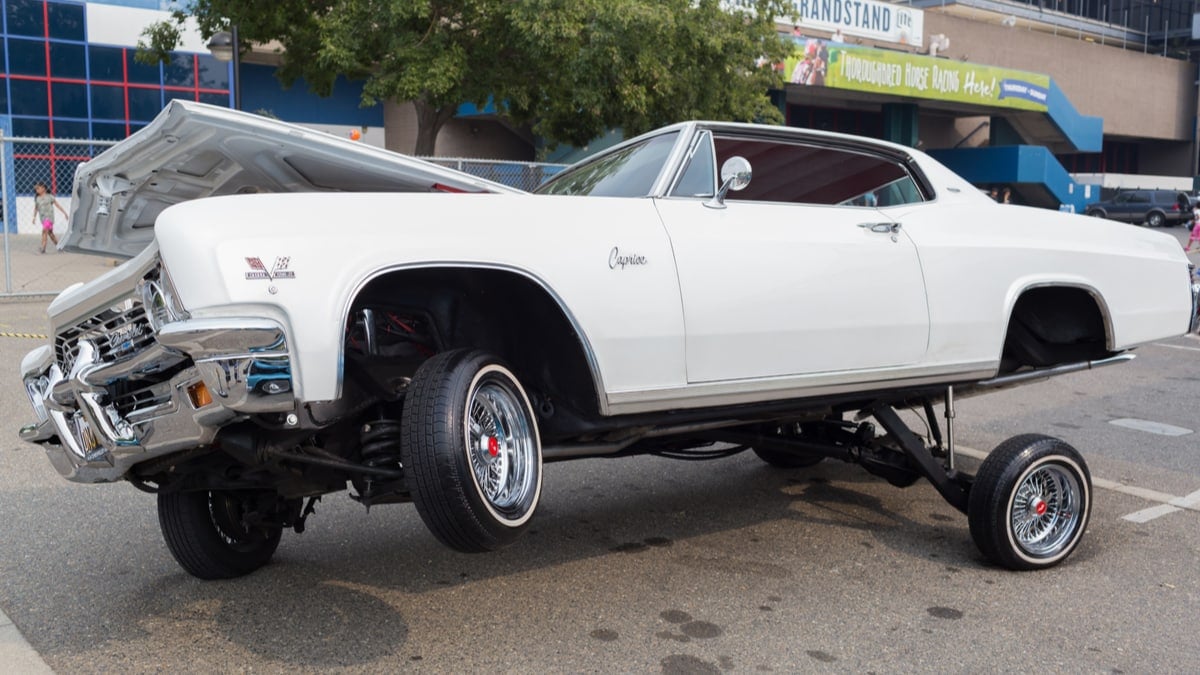If you are planning a trip, you might be looking at your rental car options. How much does it cost to rent a car for a week, and what factors influence this price?
You may spend between $35 and $125 per day to rent a vehicle. If you are renting by the week, there may be an additional discount. Expect to pay between $200 and $800 to rent a car for a week. However, the cost is dramatically impacted by the type of car rented, the location, the driver’s age, and other additional fees.
Because the rental cost will vary greatly depending on the type of car you choose, let’s take a look at the average costs based on vehicle class.
In this guide, I examine the average cost of a rental car based on its category. I also look at what affects the rental car price and show you how to save a little money.
Average Cost of Rental Cars by Class
1. Cars
There are many different sized cars available from car rental companies, and size has a dramatic impact on the cost. You can find two- and four-door car options, usually with the ability to hold four to five people.
There will also be a trunk space that holds a particular amount of luggage. On the lower end of the spectrum, you want to opt for the economy or compact car. If you want something larger, such as a mid-size or a full-size car, you will pay more.
To rent a car in these categories, you might spend $35 to $70 a day. There could also be weekly discounts that lower the average price.
RELATED: Economy Vs. Compact Car Differences (& Which is better?)
2. Luxury Cars
While a luxury car size might not be much different from the other classes, the features and amenities are upgraded. If you want a Mercedes-Benz, BMW, Audi or INFINITI, you can expect to pay more than with the standard car classes.
Of course, these cars will still offer two to four doors and have room for four to five people. There will also be trunk space available with these vehicles.
3. Sports Cars
You can easily spend $50+ per day for a convertible or sports car rental. If you want to rent it in a tourist location, the price will go up substantially.
These sports cars also offer two- and four-door configurations, but most only hold four people. Additionally, there is limited trunk space with the majority of convertibles and sports cars.
4. SUVs
The cost for an SUV rental depends solely on what size and the class you choose. You can find low-dollar options if you choose the compact SUV.
However, the three-row SUV, the luxury SUV and the Jeep Wrangler off-road model are all going to cost you more. Additionally, the more amenities you want, the higher the price is going to rise. Expect to pay anywhere from $65 to $110 per day for the average SUV.
5. Trucks
It would be normal to spend nearly $100 a day on a truck rental. You can find compact trucks for cruising the area or ½ ton pickup trucks for working on a project.
Some rental locations will also allow you to tow with the truck, but there might be an additional charge. You might also need to pay for extra insurance coverage.
RELATED: Extended Cab vs. Crew Cab Pickup Truck – Differences
6. Vans
There are many different van classes, each affecting the overall price. The cheapest van rental will be an average seven- or eight-passenger van, such as the Honda Odyssey or Toyota Sienna.
From there, you can also choose the larger 12- or 15-passenger van for carrying around a group. Otherwise, there are cargo vans available if you need to move some gear or boxes.
RELATED: Honda vs Toyota – Which is More Reliable?
Factors Affecting Rental Car Cost
1. Car Type
I’ve already broken down the different car types by approximate price. As you saw, the smaller the car and the fewer features it offers, the cheaper it is going to be.
The larger cars are going to naturally cost more. So will the luxury-focused lineup. If you want something special, such as a hybrid or EV, that is going to drive the price higher, too.
2. Time/Duration of Rental
The longer your rental term, the less you will pay per day. If you are planning to rent a car for five or six days, you might want to go for the weekly rate instead, because it might actually be cheaper.
Additionally, the time of year you rent has a lot to do with the price. If you are renting on the weekend, you can expect a higher price than during the week.
3. Rental Location
If you are visiting a hot tourist location, rental cars are going to cost more than your average rural village. If you don’t mind driving a little, you could save a little money by choosing a location outside the tourist area.
Plus, if you need to rent directly from the airport, expect to pay more. Instead, take an Uber to a location outside of the airport to see some major savings.
4. Driver’s Age
If you are over 25 years old, you can expect to pay the same rate as everyone else your age. However, drivers under 25 are going to pay more for the rental.
As a younger driver, you are a higher liability to the car company. For that reason, there are some rental car companies that won’t even rent to you or limit what class of car you can drive.
5. Fees/Insurance
There are many different fees you face when you rent a car, all of which increase the price. For starters, you are charged a fuel surcharge if you don’t fill up the tank before you bring it back.
Additionally, you have insurance coverage to consider if your policy doesn’t cover the rental. Beyond the standard taxes and fees, there’s also the option to add extra equipment, such as car seats or GPS systems, all of which further increase the price.
How to Save Money on a Rental Car
1. Book Early
If you can book the rental car weeks in advance, you not only save money, but also the hassle of trying to hunt down an available car. If you are traveling during a busy holiday or spring break, you don’t want to wait longer than necessary. Make your reservation as soon as possible.
You should also use your extra time to shop around. Look for coupons and discounts since you aren’t in a hurry to book right away.
2. Carefully Pick Location
When you are shopping around, make sure you tweak the location to see how the price changes. Some inner-city pick-up counters and airport locations are going to cost more than those out in the country.
Additionally, if you can avoid the airport, there will be fewer surcharges. Factor in the additional time and money needed to travel to another location to see if the savings are worth the effort.
3. Avoid Add-ons
It’s tempting to get all of the add-ons when you are on vacation. After all, you want to have a great time without any worries, but not every add-on is worth the money.
You don’t need a toll plan added on if you aren’t driving on toll roads. Additionally, there’s no reason to get a GPS if you are familiar with the area or you don’t mind using your phone. Factor in each expense closely to determine if it’s worth the cost to you.
4. Fill Gas Tank
Fuel prices continue to rise, making it more expensive to drive anywhere. Still, you want to fill up the rental car before you return it back to the rental agencies.
If you don’t, you will pay for gas at the rental provider. Not only can they charge a premium for the fuel, but there could also be a fee for the fill-up. It only takes a few minutes to stop at a gas station before you return the car, so there’s no reason to throw this money away.















